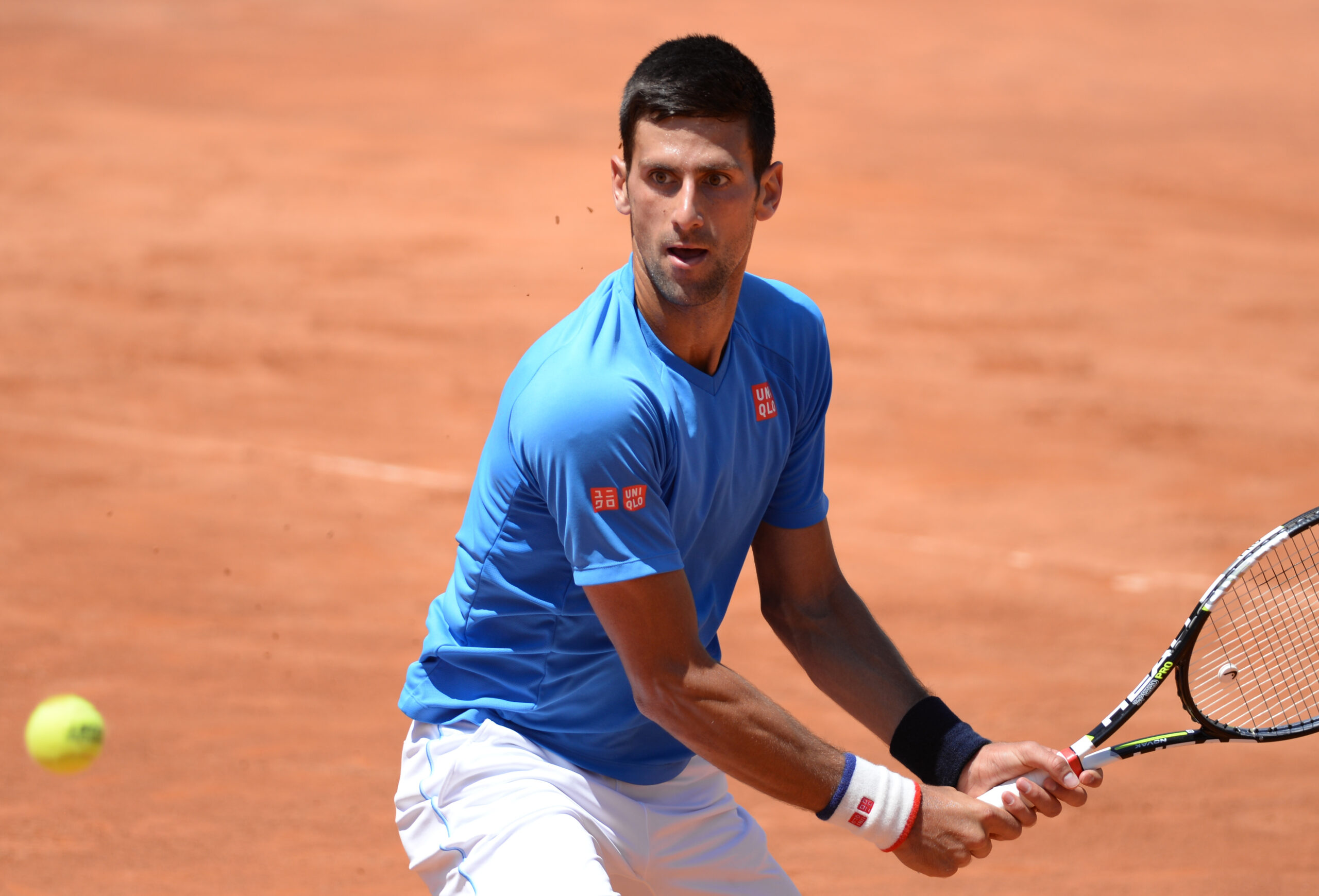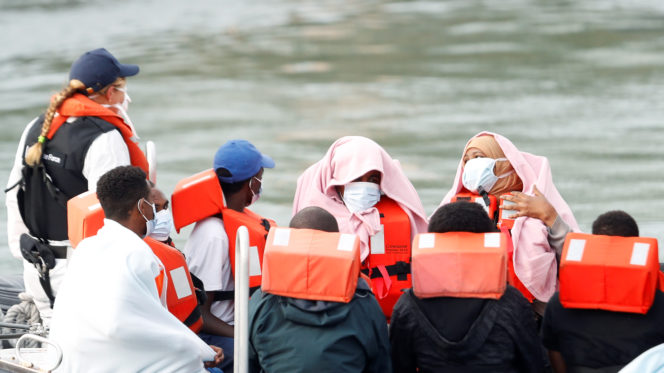Novak Djokovic’s Detention Exposed Australia’s Brutal Border Regime
The tennis champ may now be free, but thousands of people are still detained
by Dominic McGovern
11 January 2022

Mehdi* spent his birthday last Friday in the same way as his last nine: held indefinitely in an Australian immigration detention centre. Mehdi arrived in Australia from Iran in 2013 aged 15; as a member of the persecuted Ahwazi Arab minority, he was encouraged to flee by his family.
Upon arrival, he was transferred and subsequently detained in an offshore detention centre operated by the Australian government on the island nation of Nauru. He was transferred to mainland Australia in 2019 and was moved around several temporary detention centres, before eventually being placed in the Park Hotel in Melbourne.
Medhi is one of dozens of other refugees held in indefinite detention in the hotel, which hit headlines in October when a Covid-19 outbreak infected over half the detainees. He has had some contact over the years with journalists who want to tell his story, but his situation rapidly changed last week when he gained a new downstairs neighbour: Novak Djokovic.
The Serbian tennis star arrived at the Australian border on the evening of 5 January, where he was denied entry for failing to meet the country’s strict entry requirements (federal law currently requires proof of double vaccination against coronavirus). Despite his claims that the state of Victoria had accepted his grounds for medical exemption, massive public outcry over his perceived bypassing of rules meant the federal government stepped in to cancel his visa, and he was immediately detained in the Park Hotel.
“Rules are rules,” prime minister Scott Morrison tweeted on 5 January, “especially when it comes to our borders. No one is above these rules.”
Five days later, an Australian court appeared to contradict Morrison, ruling that the tennis star could stay in the country to compete in the Australian Open. Some people, it seems, are above the rules.
If the courts can process an immigration visa so quickly for Djokovic, then why do we still have refugees in detention after nine years? #auspol
— Craig Hill (@CraigHill01) January 10, 2022
Speaking to Novara Media via zoom before the court came to a decision on Djokovic’s case, Mehdi was shocked by the press reaction. “I’ve never seen this many cameras,” he said of the situation outside his hotel, “I’ve never experienced this amount of attention.” The sudden descent of hundreds of reporters has been difficult for him to digest. “It’s been nine years with no one paying attention to the humanitarian disaster unfolding here,” he says. “People are getting sick, dealing with PTSD, they have cancer, they need treatment.”
For a few moments, it seemed that Djokovic’s treatment might draw the world’s attention to this “humanitarian disaster”. “They are keeping him like a prisoner,” his mother complained in a press conference last week. “It’s not fair, it’s not human … His accommodation [is] terrible. It’s just some small immigration hotel, if it is a hotel at all; with bugs, it’s all dirty, the food is terrible.”
Mehdi echoes the sentiment: “Day by day we just try to survive. There are no windows to open for fresh air or sun … it is horrible to keep human beings in conditions like this.”
Djokovic’s mother says her son has been ‘subjected to torture.’ If Australia treats a global celebrity this way – just imagine what they have done to refugees in remote prisons in the islands for many years.
— Behrouz Boochani (@BehrouzBoochani) January 10, 2022
Seemingly the world’s media were willing to pay attention to the plight of refugees inside the hotel whilst an international celebrity was held within its walls, but are unwilling to extend this sympathy to the countless others in similar, or worse, conditions. Speaking to Mehdi a day after Djokovic’s release, he tells Novara Media that all cameras have disappeared from the front of the building.
“We are political sacrifices,” says 24-year-old refugee @MehdiAli98, who has been detained by Australian immigration authorities after seeking asylum nine years ago. Ali is being held at the same Melbourne hotel as unvaccinated tennis star Novak Djokovic. pic.twitter.com/0GLYTgPgCq
— Democracy Now! (@democracynow) January 10, 2022
The system is horrifying.
The Australian Border Force (ABF) is notorious. In 2013, the country resumed its offshore processing policy – the policy that allowed Mehdi to be detained for more than six years at the detention centre on Nauru. In 2019, Mehdi was transported from Nauru to a mainland detention centre in Brisbane, under the short-lived ‘Medevac’ policy, whereby refugees detained offshore were brought to the mainland for medical treatment. He was suffering from PTSD after almost a decade in arbitrary detention. The most obvious and urgent treatment he could receive is his release.
Mehdi’s arrival coincided with the peak of Australia’s detention of refugees, which numbered up to 10,200 in July 2013. As of June 2021, the Refugee Council of Australia puts that number at 1,492, and there are approximately 110 men still detained on Nauru, the site of Australia’s controversial offshore immigration detention centre. Despite these men meeting the necessary requirements to be designated as refugees by the UN High Commissioner for Refugees, if the ABF deems them to have entered the country unlawfully, then they can be subject to indefinite detention.
While there is a lot of focus on the 32 or so refugees detained in Park Hotel, for those who are just hearing about this, after 9 years there are still over 200 people offshore in PNG and Nauru, and 70 onshore. Those in PNG have been abandoned there by Australia.
— Mehdi Ali (@MehdiAli98) January 10, 2022
A series of leaked documents known as the ‘Nauru Papers’ exposed the reality of the situation facing refugees in offshore detention – not only inhumane living conditions, but also beatings, sexual assault, self-harm and child abuse.
The long-term psychological and physical abuse suffered by detainees has caused untold injury. A survey by the UN Refugee Agency revealed that more than 80% of refugees in offshore detention suffered from mental illnesses, including depression and PTSD. The UN High Commissioner for Human Rights, Michelle Bachelet, described the conditions in Australian offshore detention centres as an “affront to human rights”.
Australia transferred 11 children from an immigration holding center in Nauru for medical treatment. 650 people are held there, some for 5 years.
The UN says the center has:
– poor mental health treatment
– epidemic rates of depression, PTSD
– high rates of suicide attempts pic.twitter.com/721IoAFkrq— AJ+ (@ajplus) October 22, 2018
The UK is following suit.
The Australian border regime is a stark premonition of what could soon be a similar situation in the UK. The UK government is on the verge of passing the Nationality and Borders Bill, which would similarly criminalise asylum seekers arriving by sea and introduce offshore processing centres like the one Mehdi was held in on Nauru. Taking inspiration from Australian border policy, home secretary Priti Patel is seeking to remove asylum seekers to allow Britain to “take full control of its borders” whilst “speeding up the removal of those with no right to be here.”
These plans have been lambasted by refugee advocacy groups, with Human Rights Watch warning that “the human toll of warehousing asylum seekers offshore could be enormous.” This is more than evident from the mental condition of the refugees held in offshore detention by Australia; some of the children held on Nauru were “among the most traumatised” a team of paediatricians, led by the Australian Human Rights Commission, had ever seen.
‘The law has been designed to be malevolent.’
One of the best-known examples of the Australian Border Force’s MO is the story of the Murugappan family. Nades and Priya Murugappan are Tamil refugees who met in Australia after fleeing persecution in Sri Lanka. They’re known in the media as the ‘Biloela family’, after the small town in Queensland where they settled after arriving in Australia in 2012.
The family’s case attracted significant media attention in 2019 after lawyers acting on their behalf managed to secure an injunction that forced the plane deporting the family to Sri Lanka around in mid-air. Because they arrived by boat, Nades and Priya are classed as “unauthorised maritime arrivals”, which prevents them from applying for any kind of permanent visa without the express permission by a government minister. The couple’s two daughters, despite being born on Australian soil, have inherited their parents’ non-citizen status, and will never be allowed to apply for citizenship as they do not have a permanent visa, nor can they apply for one without the express permission of a government minister.
A reminder that the ministerial ‘discretion’ used for the Djokovic clusterfuck could also be used to allow the Murugappan family to go home to Biloela.
And yet they remain in limbo, with the government challenging every court decision, on bridging visas, unable to move on
— Amy Remeikis (@AmyRemeikis) January 10, 2022
If this seems like a catch-22, that’s because it is. Given Australia’s historic maltreatment of its indigenous population, its attitude to foreigners should come as no surprise. Dr Carolyn Graydon is the principal solicitor at the Asylum Seeker Resource Centre. “The law has been designed to be malevolent,” she says, remarking that “there is a complete absence of legal tools available to enforce basic human rights for refugees.”
Despite the international outcry after the conditions at Nauru were exposed, successive Australian governments have forged onwards with the brutal detention policy. “The government is committed to mandatory detention onshore, as well as its offshore detention centres, and it has shown no commitment to meeting its obligations under the UN Convention relating to the Status of Refugees,” she explains.
Global solidarity, now!
The notion that an aggressive border policy is a symbol of strong government is an idea being pursued by both the British and Australian governments. The backlash in the global press to Djokovic’s treatment has temporarily shed light on the desperate situation that Mehdi and his peers find themselves in, but much of the attention has been focused on Djokovic’s individual experience, rather than highlighting the fact that his situation is the tip of the iceberg when it comes to the abusive conditions faced by those indefinitely detained in Australia.
Dr Graydon believes this moment could be an opportunity for renewed international pressure on the Australian government. “The more people of international profile who are willing to speak out,” she says, the more “pressure” can be applied on the government, along with further enforcing “that what Australia is doing is not acceptable and cannot be normalised”.
Medhi agrees. For him, there is only so much he, his legal representatives and peers in detention can do. “After nine years [in here]… the media owe[s] [it to] us to raise our voices.”
*Mehdi prefers to be referred to solely by his first name.
Dominic McGovern is a writer from London.


